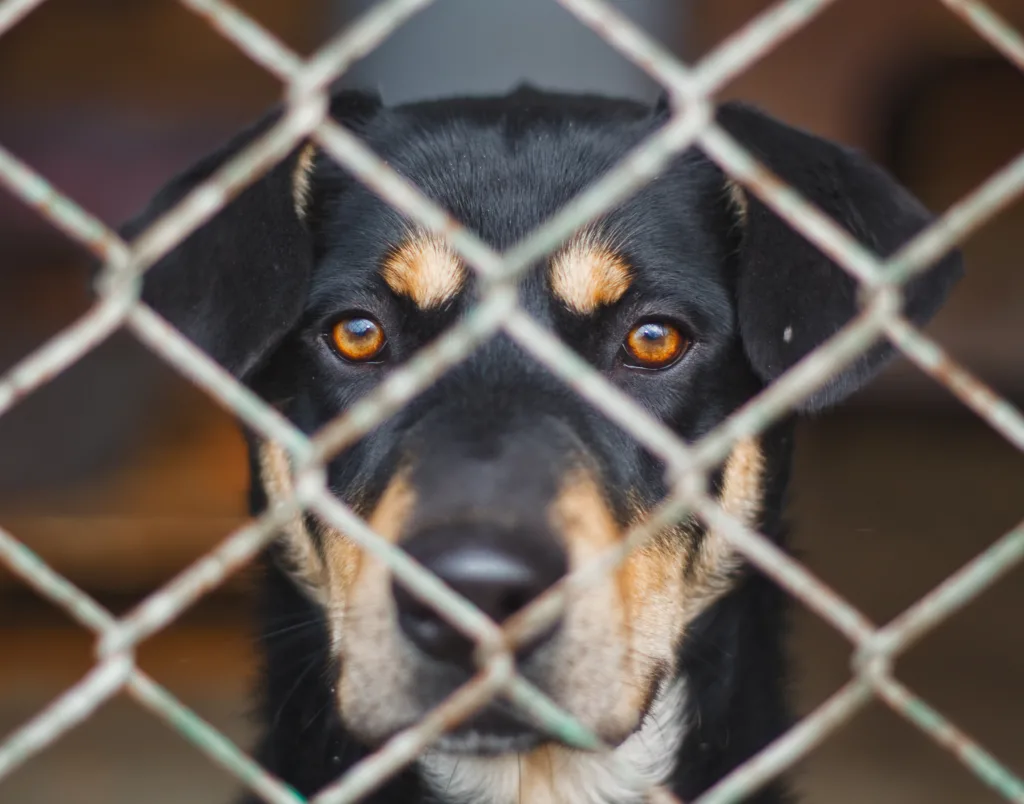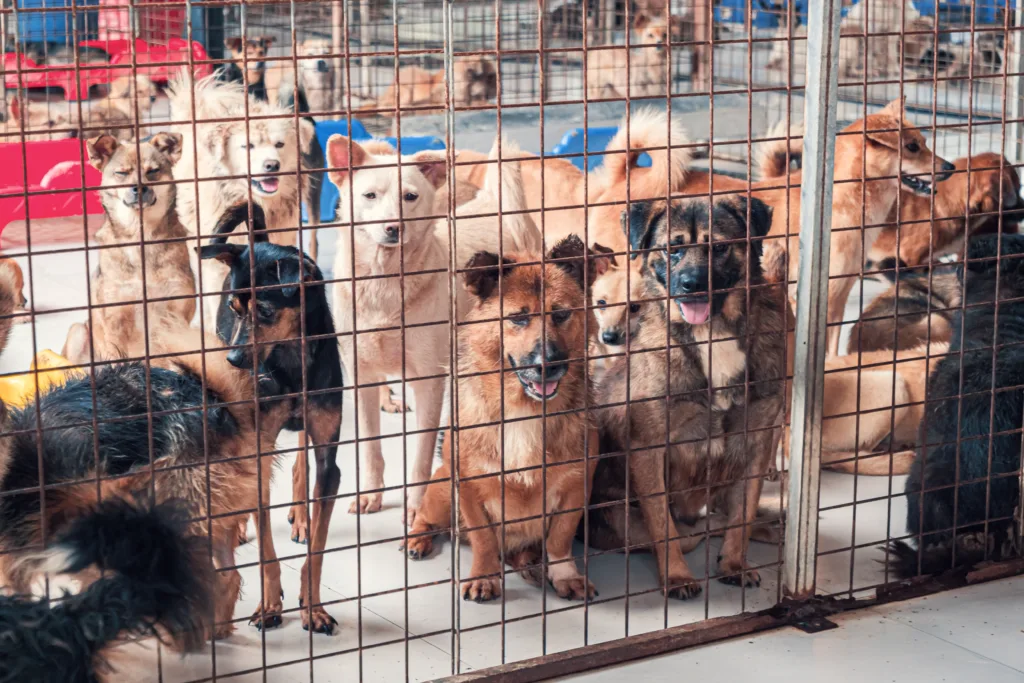As dog adoptions rise we assume dog rescue centres are safe – but they’re unregulated, and as one Dorset family learned, the reality can be distressing
When Adele Haine adopted a Romanian street dog through a Dorset rescue centre, she expected a tough adjustment – but not attacks on her children or the heartbreak of returning the animal after 18 months. As dog ownership hits record levels in England, thousands of us are turning to rescue centres. But few realise that in the UK, these centres are completely unregulated.
Since 2008, the dog population has soared from 8.5 million to 13.5 million, and nearly a third of households now have a dog. Alongside this surge, the number of abandoned and unwanted dogs has risen – some due to changes in owners’ circumstances, others simply mistreated. Increasingly, people are adopting dogs from overseas, particularly Romania. While the majority of rehoming stories end happily, others are more complex.

Unregistered rescues
Incredibly, there is no requirement in Britain to register a dog or cat rescue centre – which means that anyone can set one up. Sadly, that means the number of unregulated centres in the UK is unknown, and the lack of regulation opens the door to vulnerable animals being mistreated. MP Richard Holden, who represents Basildon and Billericay, is calling for a parliamentary debate on the licensing of these centres, which would bring higher standards and regulation into the sector. The petition, which has already attracted more than 60,000 signatures, supports the Animal Shelters (Licensing) Bill * – a cross-party initiative co-sponsored by Richard and ten other MPs: ‘I’m stepping up the campaign to get animal shelters and sanctuaries licensed. In England, breeders, kennels and pet shops are all licensed, but animal rescue centres aren’t. That loophole has left some of our most vulnerable animals without protection.
‘In one awful case in Crays Hill, Essex, 41 dogs were found dead at a so-called ‘rescue’. Because there’s no licensing scheme, the authorities had no power to step in until it was far too late.’
Here in Dorset, the picture is much the same.
A spokesperson for Dorset Council said: ‘There are no officially registered dog rescue centres in Dorset, because dog rescue centres are not required to be registered or licensed – there is no legislation governing this. Dorset Council supports dog rescue centres in helping dogs find suitable new homes, regardless of where the dog comes from, including overseas.
‘The rescue centres carry out welfare and suitability checks for new homes, and we expect dogs to be microchipped, spayed/castrated, health checked, vaccinated, wormed and behaviourally assessed. We use reputable rescue centres only, and we would not work with a rescue centre unless it is a registered charity.’

Romanian dogs
Romania has a very different relationship with dogs. Stray animals are widespread, and there’s no government-funded sterilisation scheme to control the population. Instead, the state pays catchers around €200 per dog, creating a profit-driven system where animals are rounded up with poles and cages and taken to public shelters. If these dogs remain unclaimed after two weeks, they are euthanised.
Some are rescued by charities and transported across Europe for rehoming. After basic assessments, vaccinations and neutering, they endure a four-day van journey to reach UK centres. Once here, they’re often placed in temporary foster homes to see how they adjust before adoption.
Many rescued animals do settle into loving homes – but these dogs might be deeply traumatised, and it can take a significant amount of time. Some have never lived indoors, worn a collar or interacted with humans. Settling them requires patience, understanding and often some specialist support.
When it goes wrong
While there are lots of stories on the internet of dogs find a loving homes, when Adele Haine fostered and adopted a dog from Stour Valley Dog Rescue** in Shillingstone she was faced with a highly traumatised animal. Adele lives near the rescue centre in Shillingstone where she adopted her dog, and describes a near-constant backdrop of barking. The organisation, based in a small residential bungalow, reportedly houses up to a dozen dogs at a time. Volunteers tell us the dogs are routinely kept separated indoors to prevent pack behaviour. Concerns have been raised privately about the suitability of keeping so many animals, particularly those with a history of trauma or reactivity, in such close quarters in a domestic setting.
‘I fostered, and then adopted, a dog that we unfortunately had to return. He came to me straight from the Happy Bus (a van used by the centre to transport dogs, in cages, from Romania to rescue centres). When a home couldn’t be found for him, we adopted him.
‘When you foster a dog you are meant to get 24 hour support and everything supplied, including veterinary appointments – but there was nothing, not even a tin of dog food. Ultimately, he was a street dog – reactive, unpredictable and increasingly aggressive. Within days, he started biting. He bit all of us, and after 18 months I asked them to take him back. I became seriously ill and I didn’t have the strength to pull him off the children when he attacked them, so he had to go back. In the end, I said that if they wouldn’t take him I would have him put to sleep. We received no refund, and were later told he had been placed with another family.
‘The main issue is the lack of support when things don’t go to plan. These dogs are not really family pets. Some of them have never been in a house or worn a collar: imagine trying to put a collar on a traumatised dog? The stress of their past – and the journey here – stays with some of them. I love dogs, but people don’t realise that Romanian rescues are street dogs and some will never settle in a house. I’ve heard of serious incidents, including fatal attacks, between dogs at the centre.’

No oversight
The Dogs Trust is also calling for regulation of the animal re-homing sector.
New research conducted by YouGov on behalf of Dogs Trust reveals that the vast majority of the population (79 per cent) wrongly believe that the law requires rehoming centres to be inspected and licensed.
Dogs Trust warns that this regulatory gap is putting the welfare of vulnerable animals at serious risk, and that without proper rules, rogue traders, backyard breeders and well-meaning but unqualified individuals are all putting dogs at risk of neglect, illness and even death.
Owen Sharp, chief executive of Dogs Trust, said: ‘There are brilliant rescue centres doing incredible work in the UK – but without licensing, there’s nothing to stop someone with no training or experience setting one up – and potentially doing real harm.
‘Good intentions aren’t enough. We need laws in place to make sure all rescue dogs are safe, cared for and treated with the respect they deserve.
‘Without proper oversight, these organisations cannot guarantee that they are operating in the best interests of the animals in their care.’
Adele was unaware that some rescue centres are unregulated: ‘I had no idea – and this is not just an issue in one Dorset village. It’s a national concern. Something needs to be done before people get hurt.’
- To sign the national petition click here.
** Response from Stour Valley Dog Rescue:
We are writing on behalf of Stour Valley Dog Rescue regarding your recent article, “Unlicensed rescues put dogs and families at risk,” published in the August 2025 edition of Blackmore Vale.
While we understand the importance of highlighting responsible dog adoption, we were disappointed by the way our organisation was portrayed.
The article focused solely on one negative adopter experience, without acknowledging the many successful adoptions we have facilitated over the years. We have countless examples of dogs thriving in loving homes, which represent the vast majority of our rehoming outcomes.
It also stated that we “did not respond to comment,” which is inaccurate. We explained that this is an exceptionally busy time of year and that we were unable to commit to a full interview at that moment.
The piece referred to our rescue as “unlicensed,” but this is misleading. Currently, there is no licensing scheme for dog rescues in the UK. We have consistently supported the introduction of a formal licensing system and would welcome its creation to ensure high standards across the sector.
Unfortunately, a recent issue with a neighbour has led to a smear campaign intended to damage the rescue’s reputation. We are treating this with the contempt it deserves and remain focused on the welfare of the dogs in our care.
Our priority has always been the welfare of the dogs we rescue and rehome, and we remain proud of the work we do to transform the lives of dogs and their new families.
We would appreciate it if you could publish this clarification to ensure your readers receive a fair and accurate understanding of our work. – Stour Valley Dog Rescue


